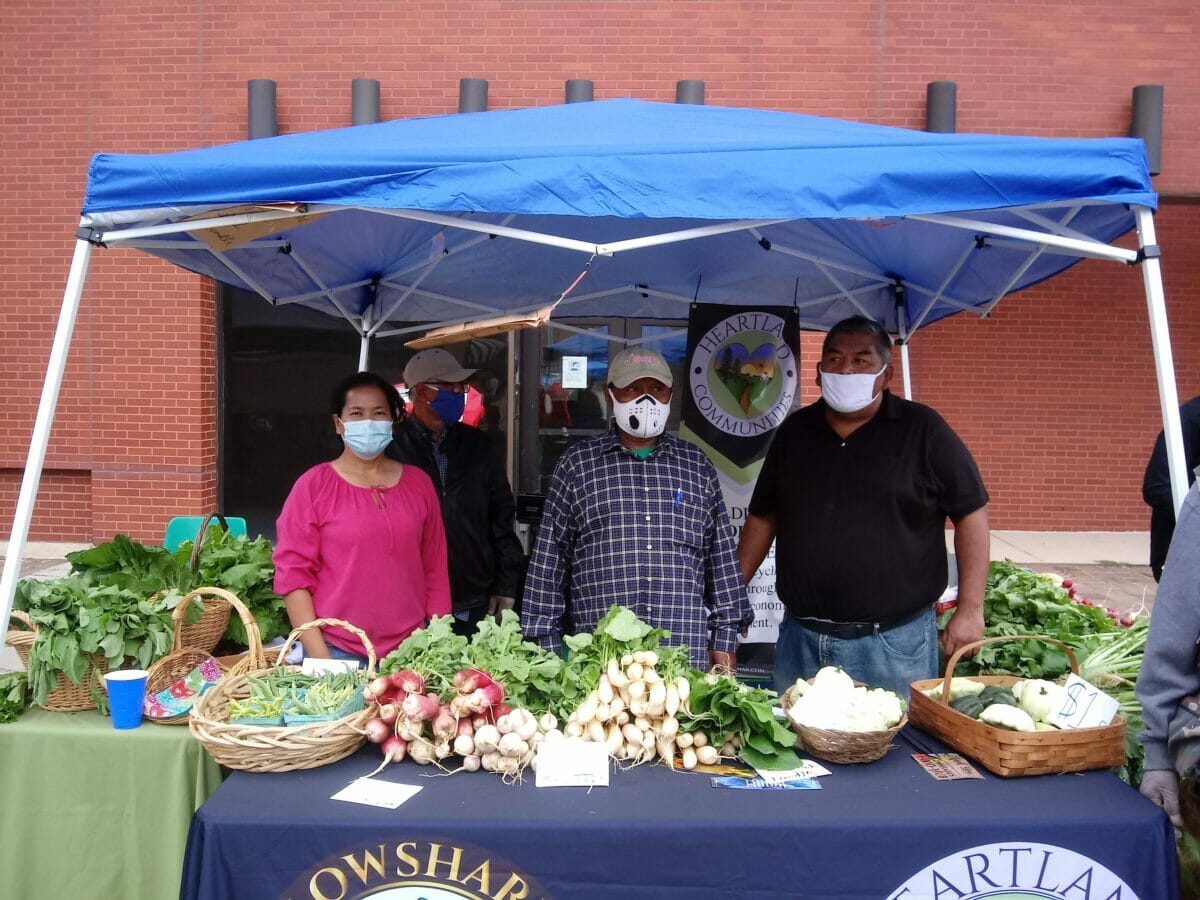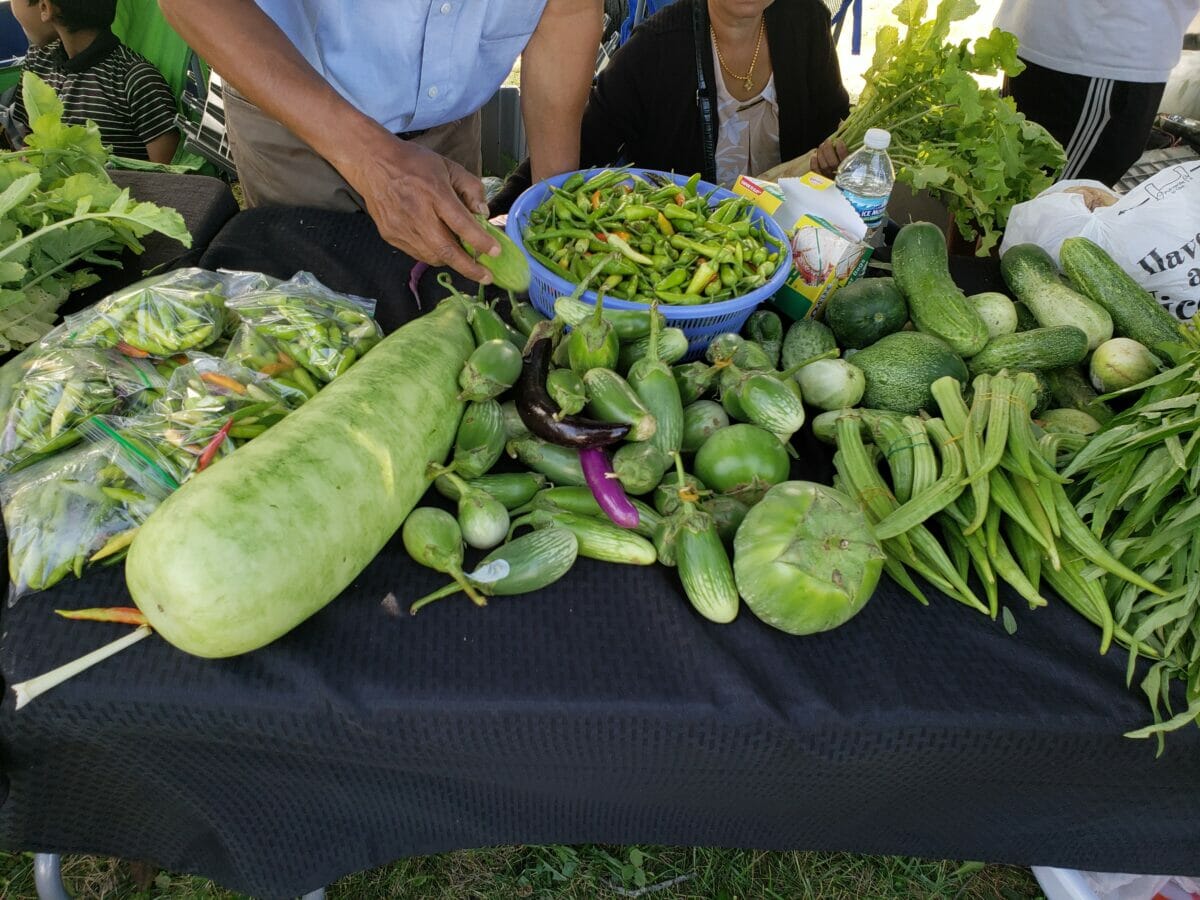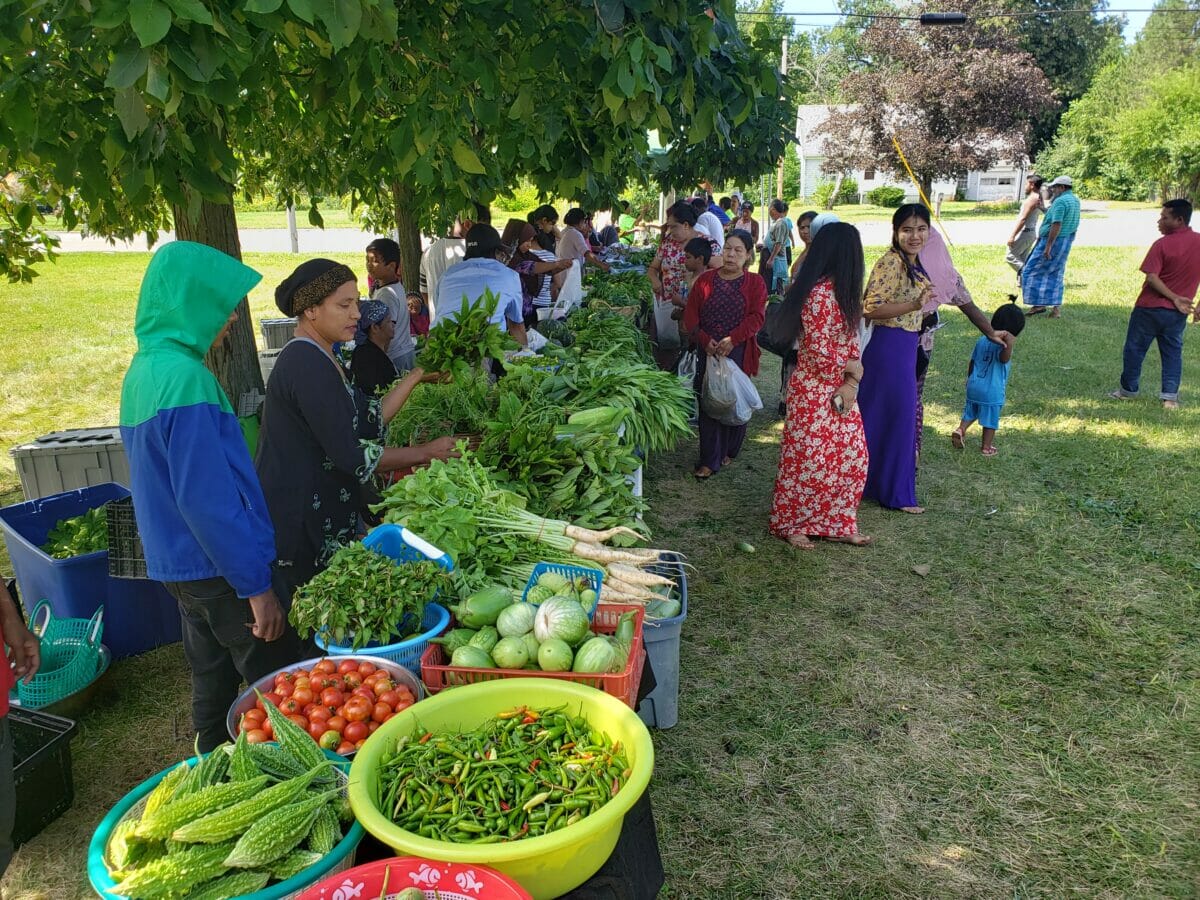A refugee incubator farm in Fort Wayne is helping the community build wealth, knowledge and connections.

Fort Wayne, Indiana is home to more than 10,000 Burmese residents, one of the largest Burmese communities in the United States. Many immigrated from the Thai-Burmese border as refugees beginning in the early 1990s and, over the years, have largely been relegated to menial manufacturing jobs. But before immigrating to the United States, many of these refugees worked as farmers.
One organization is helping Burmese refugees reconnect with their roots. Rose Avenue Education Farm, founded in 2020, offers the opportunity for the local community of Burmese refugees to create sustainable careers as small-scale independent farmers. The incubator farm is a collaborative project among three local nonprofit organizations, funded by a $300,000 grant from the US Department of Health and Human Services, Office of Refugee Resettlement. At Rose Avenue, refugee farmers receive plots of land, training, technical assistance, interpreters, tools and equipment—all the resources they need to launch a startup farm and navigate the requisite taxes and bureaucracy of owning a small business.
“I came to the United States in my late 50s and I had to start over again,” says Soe Thein, who works at the farm. “I had a hard time adjusting to my life here. I worked in a factory for a short period of time and I feel like that is not me. Now my wife and I work [on] each plot and I find myself in the right place. With my income from the farm, I am financially independent. I can even help my friends.”
Last year, Save Maumee Grassroots Organization donated 10 acres of farmland to Rose Avenue Education Farm and Workers’ Project connected with the Burmese refugee community to find interested candidates. Heartland Communities chipped in to help educate farmers on local weather and organic farming practices, providing them with translators and the tools needed to become self-sufficient farmers in Indiana. Project manager Jain Young oversees the program and is equally passionate about empowering local Burmese farmers as she is about strengthening local food systems and encouraging Hoosiers to eat more locally grown foods.
“I used to do farming and livestock keeping full time back in Burma,” says Ha Run, another farmer at Rose Avenue. “When I came to the United States, I worked in a factory, but I always wanted to be a farmer again. Now my wish is fulfilled here [at] Rose Avenue Farm. I think my farmer’s blood runs in my body. I am very happy!”
Rose Avenue Education Farm started in spring 2020—farmers were fully masked and socially distanced—with nine tilled acres split among 10 Burmese families. They helped transform a corn and soy row-crop field into an intensive vegetable farm.

Photo courtesy of Rose Avenue Education Farm.
Each family has complete autonomy over the crops they choose to grow. Fields are planted with an array of familiar vegetables used in Burmese cuisine, including sour leaf, water spinach, bitter melon, radishes and various squashes to meet demands for Asian ingredients that can otherwise be hard to find in Northeast Indiana. The farmers sell directly to mostly fellow Burmese consumers at weekly farmers’ markets.
“In 2020, the first vegetables were harvested in mid-September and each farmer group earned a few hundred dollars by Christmas,” says Young. Sales have grown tremendously this year, in large part thanks to Plowshares Cooperative, the local food distribution co-op with which the farmers work, getting approved to accept SNAP benefits payments for fresh vegetables and St. Joseph Foundation providing matching funds for SNAP purchases. “We started our own farmers market primarily for Burmese customers on the lawn at the League for the Blind, and in 16 weekends sold more than $100,000 in EBT/SNAP purchases.”

Photo courtesy of Rose Avenue Education Farm.
While there was great success in selling whole, uncut vegetables to the Burmese community in Fort Wayne, growers encountered less success selling to non-Burmese Americans at the downtown farmers’ market. Young believes that mobile markets and value-added processing of their vegetables are the solution.
Heartland Communities, one of the three organizations behind the farm, recently received a second grant from the USDA Agricultural Marketing Service for a Farmers Market Promotion Program to take these next steps in farm business incubation.
“One aspect of the grant is to establish a production kitchen for value-added food products using the vegetables grown at Rose Avenue Farm,” says Young. “This will create additional revenue streams for farmers, extend the life of vegetables the farmers grow and create more jobs in food processing and fresh prepared food.”
Instead of selling vegetables as commodities, the Burmese refugee farmers would be able to sell ready-to-eat foods and meal kits at higher prices. Young believes that will appeal more to non-Burmese locals who might not regularly cook with the ingredients that they might consider specialty produce at home, especially unfamiliar ones such as bitter melon and sour leaf.
“Rather than selling cabbage for 39 cents a pound, we can sell an artisan coleslaw for $4.39 a pound,” Young says. And when the sour leaf season is finished, a lightly processed version of the plant can be simmered and frozen, ready for use and sold throughout the winter. “We want to put healthy food choices and vegetable-abundant meals easily within reach for everyone.”
Such an exciting endover